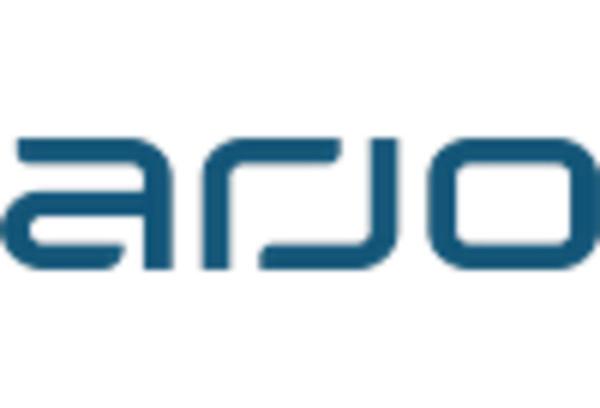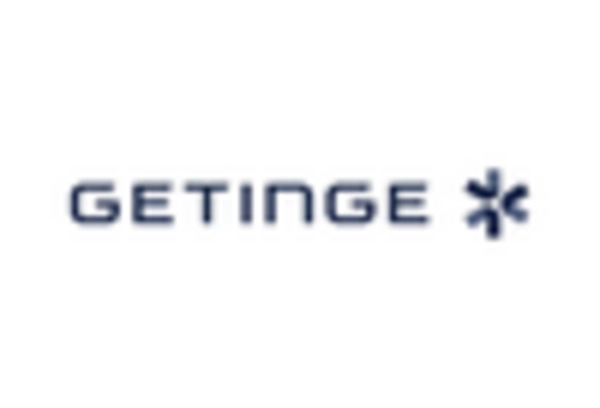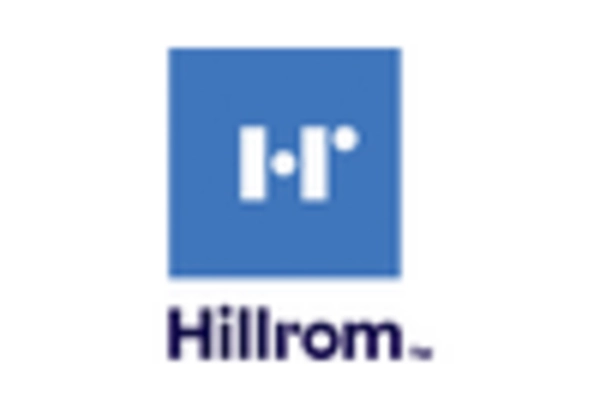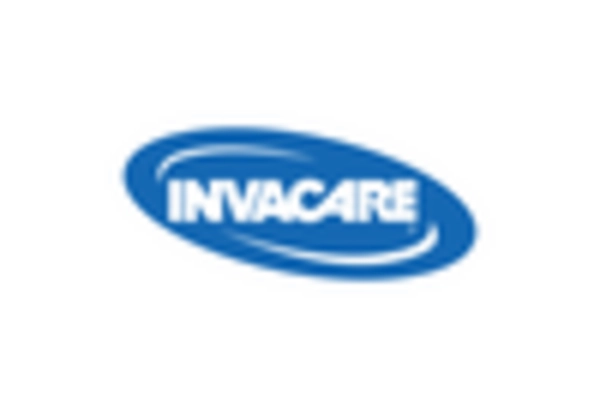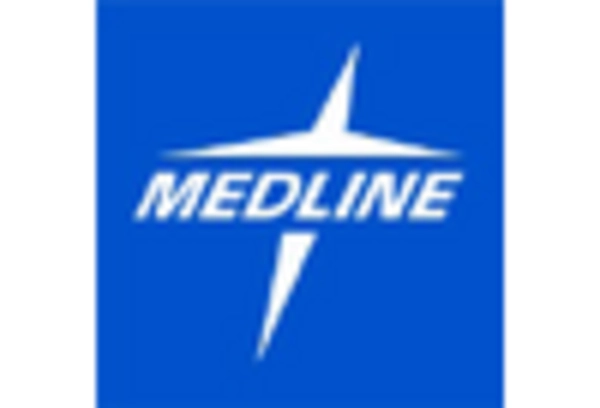Aging Population Demographics
The aging population in Germany is a crucial driver for the electrical hospital-beds market. As the demographic shifts towards an older age group, the demand for healthcare services, including hospital beds, is expected to rise significantly. By 2030, it is projected that over 20% of the German population will be aged 65 and above, necessitating more advanced healthcare solutions. This demographic trend indicates a growing need for electrical hospital beds that offer enhanced comfort and functionality for elderly patients. Furthermore, the increasing prevalence of chronic diseases among older adults further fuels the demand for specialized hospital equipment. Consequently, manufacturers in the electrical hospital-beds market are likely to focus on developing innovative products tailored to meet the specific needs of this demographic, thereby driving market growth in the coming years.
Rising Healthcare Expenditure
Rising healthcare expenditure in Germany is a significant driver for the electrical hospital-beds market. The German government has been increasing its healthcare budget, with spending projected to reach €500 billion by 2025. This increase in funding allows hospitals to invest in modern medical equipment, including electrical hospital beds, which are essential for providing quality patient care. Additionally, the emphasis on improving healthcare facilities and patient comfort is likely to lead to higher demand for advanced hospital beds. As hospitals upgrade their infrastructure to meet the growing expectations of patients and regulatory standards, the electrical hospital-beds market is poised for growth. This trend indicates a robust market environment where manufacturers can thrive by offering innovative solutions that align with the evolving needs of healthcare providers.
Focus on Patient Safety and Comfort
The focus on patient safety and comfort is increasingly influencing the electrical hospital-beds market. Hospitals in Germany are prioritizing the well-being of patients, leading to a demand for beds that enhance safety features, such as fall prevention systems and adjustable height settings. The integration of ergonomic designs and user-friendly controls is also becoming essential in hospital bed design. This shift towards patient-centered care is supported by various healthcare policies aimed at improving patient experiences. As a result, manufacturers are likely to innovate and produce electrical hospital beds that not only meet safety standards but also provide maximum comfort. This trend is expected to drive the growth of the electrical hospital-beds market as healthcare facilities strive to create a healing environment for patients.
Technological Advancements in Healthcare
Technological advancements play a pivotal role in shaping the electrical hospital-beds market. Innovations such as smart beds equipped with sensors and connectivity features are becoming increasingly prevalent. These beds can monitor patient vitals, adjust positions automatically, and integrate with hospital information systems, enhancing patient care and operational efficiency. In Germany, the healthcare sector is investing heavily in digital transformation, with an estimated €3 billion allocated for health IT initiatives in 2025. This investment is likely to spur the development and adoption of advanced electrical hospital beds, as healthcare providers seek to improve patient outcomes and streamline operations. As a result, the electrical hospital-beds market is expected to witness substantial growth driven by the integration of cutting-edge technology into hospital infrastructure.
Increased Demand for Home Healthcare Solutions
The increased demand for home healthcare solutions is emerging as a significant driver for the electrical hospital-beds market. With a growing preference for receiving care at home, particularly among the elderly and chronically ill, there is a rising need for hospital-grade equipment that can be used in residential settings. In Germany, the home healthcare market is projected to grow at a CAGR of 8% through 2025, indicating a shift in how healthcare services are delivered. This trend is prompting manufacturers to develop electrical hospital beds that are not only suitable for hospitals but also adaptable for home use. As a result, the electrical hospital-beds market is likely to expand, catering to the needs of patients who require specialized care in the comfort of their homes.



